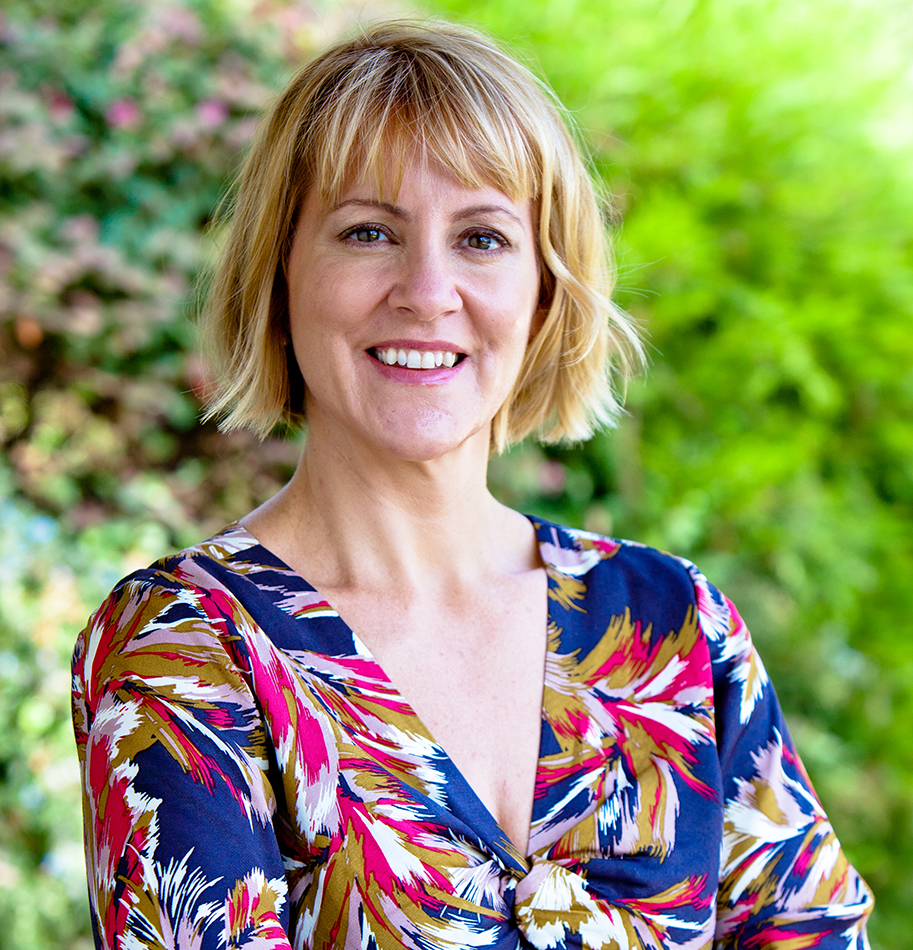Nutritionist Sharon Palmer discusses her cookbook

Eat well, be well · Sharon Palmer advocates plant-based diets for health, personal and environmental reasons. Palmer attended a faculty master dinner on Tuesday and the Trojan Farmer’s Market on Wednesday. – Photo courtesy of Sharon Palmer
In the midst of USC’s Health and Wellness Week, a week promoting sustainable, healthy living and bringing awareness to mental health issues, some might realize that it’s time to make a lifestyle change. However, changing a habit or lifestyle can be an overwhelming and daunting process. Though becoming vegetarian is a choice that is becoming more common and well-received, those who wish to pursue this path — whether it’s for health or personal reasons — often don’t know where to start.
In nutritionist, writer and blogger Sharon Palmer’s newest book, Plant-Powered for Life, Palmer creates a guide for healthy eating that is fun and accessible for everyone. Her book is a combination of cookbook and handbook, providing an interactive yet informative approach to a plant-based diet. Palmer believes that the journey to becoming a vegan or a vegetarian can be achieved through step-by-step practice and the right amount of assistance. Palmer is a registered dietitian and an award-winning journalist with 16 years of health care experience under her belt. Passionate about food, the environment and sustainability, Palmer hopes to pursue a plant-based diet by giving talks around the globe. She recently spoke at Café 84 for a faculty master dinner about
Plant-Powered for Life. During the dinner, Palmer spoke to the Daily Trojan about the importance of plant-based living.
Daily Trojan: What inspired you do the plant-based diet and write this book?
Sharon Palmer: For most of my life, my family and I were either vegetarian or semi-vegetarian. Even when I was semi-vegetarian, I was never really a huge fan of meat. In college, I attended and studied nutrition at Loma Linda University, which was a non-meat campus. I wanted to write this book because it was something I wanted to do and the environment and animal welfare is something that I am passionate about.
DT: In recent years, there seems to be an ongoing trend of becoming vegan or vegetarian. Especially in Los Angeles, many celebrities are glamorizing it with their juicing sets, obsession with kale and all things organic. What do you think of this trend? Do you think that this trend is helping or hurting the movement?
SP: I think that the trend definitely helps in bringing awareness to the plant-based movement. It’s good that celebrities are getting into this lifestyle because it influences people to learn more about it and try it too. Though there might be misinformation, they might be telling people different aspects of the diet that may not be correct, the whole Hollywood thing is helping to support the plant-based movement. The fact that it is a trend created a perfect timing and an extra push for me to advocate for the
plant-based diet, since people are more open and accepting to the idea of it. If it was not a trend, I would still do it anyway. I would still be writing and giving talks about it because this is something that I’m passionate about.
DT: In your talk, you said the number one reason people switch to the plant-based diet is for health. The number two and three reasons are animals and the environment. Which of the three was the biggest factor for you?
SP: First reason was health and then it was close to animals. [The documentary] Food Inc. really influenced me. It really made me think about animals. I think that I was oblivious to how animals were being treated. It made the animal part very important. The difference between vegetarian and vegan is the animal part.
DT: Have you thought about going into another field?
SP: I thought about going back to school to further my knowledge on nutrition or going into Environmental Science, but I am too busy. I currently run my
blog, speak all across the United States, do consulting and am on the Nutrition Advisory Committee. Going back to school is something that I always thought about doing but don’t think I have time for.
DT: Do you think the plant-based diet is more female dominated? Do you think that there’s a stigma for men being vegetarian or vegan with being too feminine that would drive them to not pursue it?
SP: Yes, I do think that there is this whole meat thing where guys think they need to eat meat to be tough. Surprisingly, there isn’t a huge difference when you look at the numbers. I always try to get people, even my own friends, to embrace the idea regardless of gender.
DT: What are your thoughts on people who want to start the plant-based lifestyle but can’t seem to give up meat?
SP: I think it’s a personal choice. I would not want to make people feel guilty if they don’t do it. If you want to do it, then do it. I do want everybody to pursue a
plant-based diet, but I am not militant about it. For me, you don’t have to give it up — just cut back. Cutting back even a little bit can make a huge difference.
DT: What are some ideas to motivate people to start a plant-based diet?
SP: Start with small steps like Meatless Monday. Some people are more gradual and are not ready to say never ever. It’s like smoking. If it is somebody’s behavior and health, it’s even bigger. A consistent
plant-based eater is proven to live longer than those who aren’t. A
plant-powered lifestyle is not about being boring. There are 40,000 species of plants and thousands of varieties. There’s such a diverse array of plants and many ways to incorporate them into your diet and your life.
